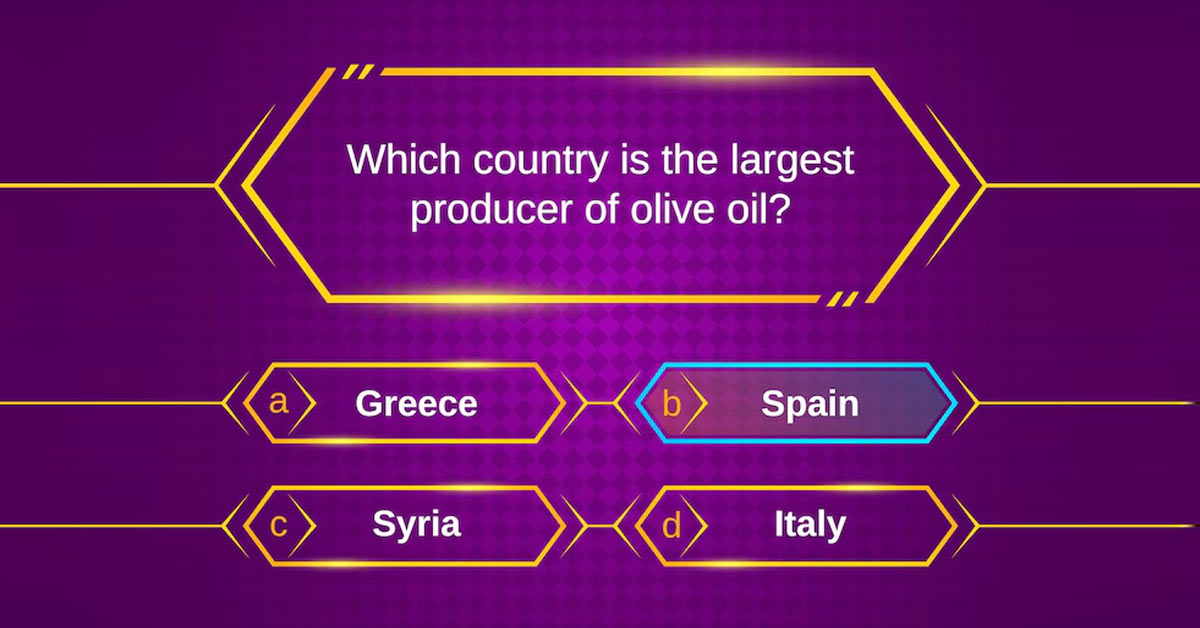In the competitive world of digital marketing, businesses are constantly seeking innovative ways to engage their audience, gather valuable data, and ultimately drive conversions. Quiz marketing has emerged as a powerful tool to achieve these business goals – generating quality leads and driving easy sales. It has been utilized by a number of notable names including BuzzFeed, The New York Times, Shopify, ClassPass, and many more.
Let us learn more about quiz marketing for business. This guide will enlighten you on what is quiz marketing, its benefits for businesses, the types of quizzes you can use, how to choose the right questions, and the importance of adding a lead generation form on the quiz results page.
1. What is Quiz Marketing?
Quiz marketing involves creating and sharing quizzes as a form of content marketing. These quizzes are designed to engage users by asking questions that are relevant to their interests or needs. Once the quiz is completed, users receive personalized results, which can include recommendations, insights, or even products tailored to their responses. This interactive content not only entertains but also provides valuable data for businesses to better understand their audience and tailor their marketing strategies accordingly.
2. Benefits of Quiz Marketing for Business
Quiz marketing offers several advantages for businesses:
a. Increased Engagement: Quizzes are interactive and entertaining, which keeps users engaged longer than static content. This increased engagement can lead to higher time spent on your site and a lower bounce rate.
b. Data Collection: Quizzes can gather valuable information about your audience, such as their preferences, behaviors, and demographics. This data can be used to refine marketing strategies and create more targeted campaigns.
c. Lead Generation: By incorporating lead capture forms, quizzes can help businesses collect contact information from potential customers, turning them into leads.
d. Personalized Marketing: The results from quizzes can provide insights that allow businesses to send personalized follow-up emails and recommendations, increasing the likelihood of conversion.
e. Social Sharing: Engaging quizzes are more likely to be shared on social media, increasing your brand’s reach and visibility.
3. Types of Quizzes for Marketing
There are various types of quizzes that can be utilized for marketing purposes, each serving different objectives:
a. Personality Quizzes: These quizzes help users learn more about themselves, making them highly engaging. For example, “What Type of Traveler Are You?” can be used by travel agencies to recommend vacation packages based on the results.
b. Knowledge Quizzes: These quizzes test the user’s knowledge on a particular subject. They can be used to educate the audience about your product or industry, e.g., “How Much Do You Know About Sustainable Fashion?”
c. Product Recommendation Quizzes: These quizzes guide users to products or services that best match their needs. For instance, a beauty brand might use “Which Skincare Product is Right for You?” to recommend specific products.
d. Assessment Quizzes: These quizzes evaluate the user’s skills or knowledge in a certain area, often used in educational and professional development contexts, e.g., “How Well Do You Know SEO Best Practices?”
4. How to Choose the Right Questions for Quizzes?
Choosing the right questions is crucial for the success of your quiz. Here are some tips:
a. Align with Objectives: Ensure your questions are aligned with your marketing goals. If your aim is to recommend products, focus on questions that help identify user preferences.
b. Keep it Short and Simple: Long quizzes can be off-putting. Aim for 5-10 questions that are easy to understand and answer.
c. Make it Relevant: Ask questions that are relevant to your audience’s interests and needs. This relevance keeps them engaged and provides you with useful data.
d. Use a Conversational Tone: A friendly, conversational tone makes the quiz more enjoyable and engaging.
e. Mix Question Types: Use a variety of question types (multiple choice, rating scale, etc.) to keep the quiz interesting.
f. Provide Value: Ensure that the quiz provides value to the user, whether through entertainment, education, or personalized recommendations.
5. Adding Lead Generation Form on the Quiz Results Page
To maximize the benefits of quiz marketing, include a lead generation form on the quiz results page. Here’s how to do it effectively:
a. Make it Seamless: Integrate the lead form smoothly into the results page. Avoid disrupting the user experience.
b. Offer an Incentive: Encourage users to fill out the form by offering an incentive, such as a discount code, a free eBook, or access to exclusive content.
c. Keep it Simple: Ask for minimal information—typically just a name and email address. The easier the form is to fill out, the more likely users are to complete it.
d. Explain the Value: Clearly communicate the benefits of signing up. Let users know what they will receive in return for providing their information.
e. Ensure Privacy: Assure users that their data will be kept private and secure. A brief privacy statement can help build trust.
f. Follow-up: Once you have the lead, follow up with personalized emails based on their quiz results. This personalization increases the likelihood of conversion.
Conclusion
Quiz marketing is a dynamic and effective strategy that can significantly enhance your business’s engagement, data collection, and lead generation efforts. By creating engaging and relevant quizzes, choosing the right questions, and integrating lead generation forms, businesses can build stronger connections with their audience and drive conversions. Start leveraging quiz marketing today to unlock its full potential for your business.






